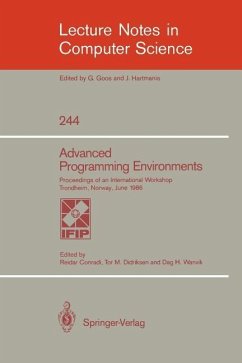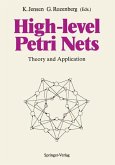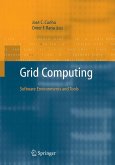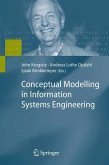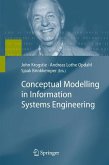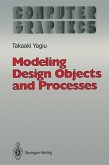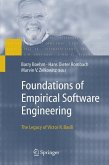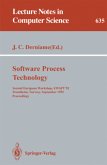Advanced Programming Environments
Proceedings of an International Workshop Trondheim, Norway, June 16-18, 1986
Herausgegeben:Conradi, Reidar; Didriksen, Tor M.; Wanvik, Dag H.
Advanced Programming Environments
Proceedings of an International Workshop Trondheim, Norway, June 16-18, 1986
Herausgegeben:Conradi, Reidar; Didriksen, Tor M.; Wanvik, Dag H.
- Broschiertes Buch
- Merkliste
- Auf die Merkliste
- Bewerten Bewerten
- Teilen
- Produkt teilen
- Produkterinnerung
- Produkterinnerung
Organized by: IFIP Working Group 2.4 on Systems Programming Languages in Cooperation with ACM SIGPLAN/SIGSOFT
Andere Kunden interessierten sich auch für
![High-level Petri Nets High-level Petri Nets]() High-level Petri Nets41,99 €
High-level Petri Nets41,99 €![Grid Computing: Software Environments and Tools Grid Computing: Software Environments and Tools]() Jose C. Cunha / Omer F. Rana (eds.)Grid Computing: Software Environments and Tools120,99 €
Jose C. Cunha / Omer F. Rana (eds.)Grid Computing: Software Environments and Tools120,99 €![Conceptual Modelling in Information Systems Engineering Conceptual Modelling in Information Systems Engineering]() John KrogstieConceptual Modelling in Information Systems Engineering38,99 €
John KrogstieConceptual Modelling in Information Systems Engineering38,99 €![Conceptual Modelling in Information Systems Engineering Conceptual Modelling in Information Systems Engineering]() Conceptual Modelling in Information Systems Engineering38,99 €
Conceptual Modelling in Information Systems Engineering38,99 €![Modeling Design Objects and Processes Modeling Design Objects and Processes]() Takaaki YagiuModeling Design Objects and Processes81,99 €
Takaaki YagiuModeling Design Objects and Processes81,99 €![Foundations of Empirical Software Engineering Foundations of Empirical Software Engineering]() Foundations of Empirical Software Engineering116,99 €
Foundations of Empirical Software Engineering116,99 €![Software Process Technology Software Process Technology]() Jean-Claude Derniame (ed.)Software Process Technology41,99 €
Jean-Claude Derniame (ed.)Software Process Technology41,99 €-
-
-
Organized by: IFIP Working Group 2.4 on Systems Programming Languages in Cooperation with ACM SIGPLAN/SIGSOFT
Hinweis: Dieser Artikel kann nur an eine deutsche Lieferadresse ausgeliefert werden.
Hinweis: Dieser Artikel kann nur an eine deutsche Lieferadresse ausgeliefert werden.
Produktdetails
- Produktdetails
- Lecture Notes in Computer Science 244
- Verlag: Springer / Springer Berlin Heidelberg / Springer, Berlin
- Artikelnr. des Verlages: 978-3-540-17189-8
- 1987.
- Seitenzahl: 616
- Erscheinungstermin: 18. März 1987
- Englisch
- Abmessung: 235mm x 155mm x 33mm
- Gewicht: 853g
- ISBN-13: 9783540171898
- ISBN-10: 3540171894
- Artikelnr.: 23113893
- Herstellerkennzeichnung Die Herstellerinformationen sind derzeit nicht verfügbar.
- Lecture Notes in Computer Science 244
- Verlag: Springer / Springer Berlin Heidelberg / Springer, Berlin
- Artikelnr. des Verlages: 978-3-540-17189-8
- 1987.
- Seitenzahl: 616
- Erscheinungstermin: 18. März 1987
- Englisch
- Abmessung: 235mm x 155mm x 33mm
- Gewicht: 853g
- ISBN-13: 9783540171898
- ISBN-10: 3540171894
- Artikelnr.: 23113893
- Herstellerkennzeichnung Die Herstellerinformationen sind derzeit nicht verfügbar.
Reidar Conradi received his Ph.D. in computer science from the Norwegian University of Science and Technology (NTNU) in 1976. From 1972 to 1975 he worked at SINTEF as a researcher. Since 1975 he has been assistant professor at NTNU and a full professor since 1985. He has participated in many national and EU projects and chaired several workshops. His research interests are in software engineering, object-oriented methods and software reuse, distributed systems, software evolution and configuration management, software quality and software process improvement.
Source level debuggers: Experience from the design and implementation of chillscope.- Data-oriented incremental programming environments.- Context-sensitive editing with PSG environments.- Editing large programs using a structure-oriented text editor.- On the usefulness of syntax directed editors.- PegaSys and the role of logic in programming environments.- GARDEN tools: Support for graphical programming.- Discussion.- SunPro engineering a practical program development environment.- Information structuring for software environments.- An architecture for tool integration.- Software development in a distributed environment: The XMS system.- The SAGA approach to automated project management.- A process-object centered view of software environment architecture.- Software development environments: Research to practice.- Discussion.- A model of software manufacture.- Protection and cooperation in a software engineering environment.- The integration of version control into programming languages.- Discussion.- IDL: Past experience and new ideas.- Supporting flexible and efficient tool integration.- Views for tools in integrated environments.- Discussion.- Damokles - A database system for software engineering environments.- Toward a persistent object base.- Choosing an environment data model.- Version management in an object-oriented database.- Discussion.- Abstract data types, specialization, and program reuse.- Towards advanced programming environments based on algebraic concepts.- Program development by transformation and refinement.- Discussion.- Creating a software engineering knowledge base.- The unified programming environment: Unobtrusive support.- Beyond programming-in-the-large: The next challenges for software engineering.- Reuse of cliches in the knowledge-basededitor.- Organizing programming knowledge into syntax-directed experts.- Framework for a knowledge-based programming environment.- Discussion.- Summing up.
Source level debuggers: Experience from the design and implementation of chillscope.- Data-oriented incremental programming environments.- Context-sensitive editing with PSG environments.- Editing large programs using a structure-oriented text editor.- On the usefulness of syntax directed editors.- PegaSys and the role of logic in programming environments.- GARDEN tools: Support for graphical programming.- Discussion.- SunPro engineering a practical program development environment.- Information structuring for software environments.- An architecture for tool integration.- Software development in a distributed environment: The XMS system.- The SAGA approach to automated project management.- A process-object centered view of software environment architecture.- Software development environments: Research to practice.- Discussion.- A model of software manufacture.- Protection and cooperation in a software engineering environment.- The integration of version control into programming languages.- Discussion.- IDL: Past experience and new ideas.- Supporting flexible and efficient tool integration.- Views for tools in integrated environments.- Discussion.- Damokles - A database system for software engineering environments.- Toward a persistent object base.- Choosing an environment data model.- Version management in an object-oriented database.- Discussion.- Abstract data types, specialization, and program reuse.- Towards advanced programming environments based on algebraic concepts.- Program development by transformation and refinement.- Discussion.- Creating a software engineering knowledge base.- The unified programming environment: Unobtrusive support.- Beyond programming-in-the-large: The next challenges for software engineering.- Reuse of cliches in the knowledge-basededitor.- Organizing programming knowledge into syntax-directed experts.- Framework for a knowledge-based programming environment.- Discussion.- Summing up.

